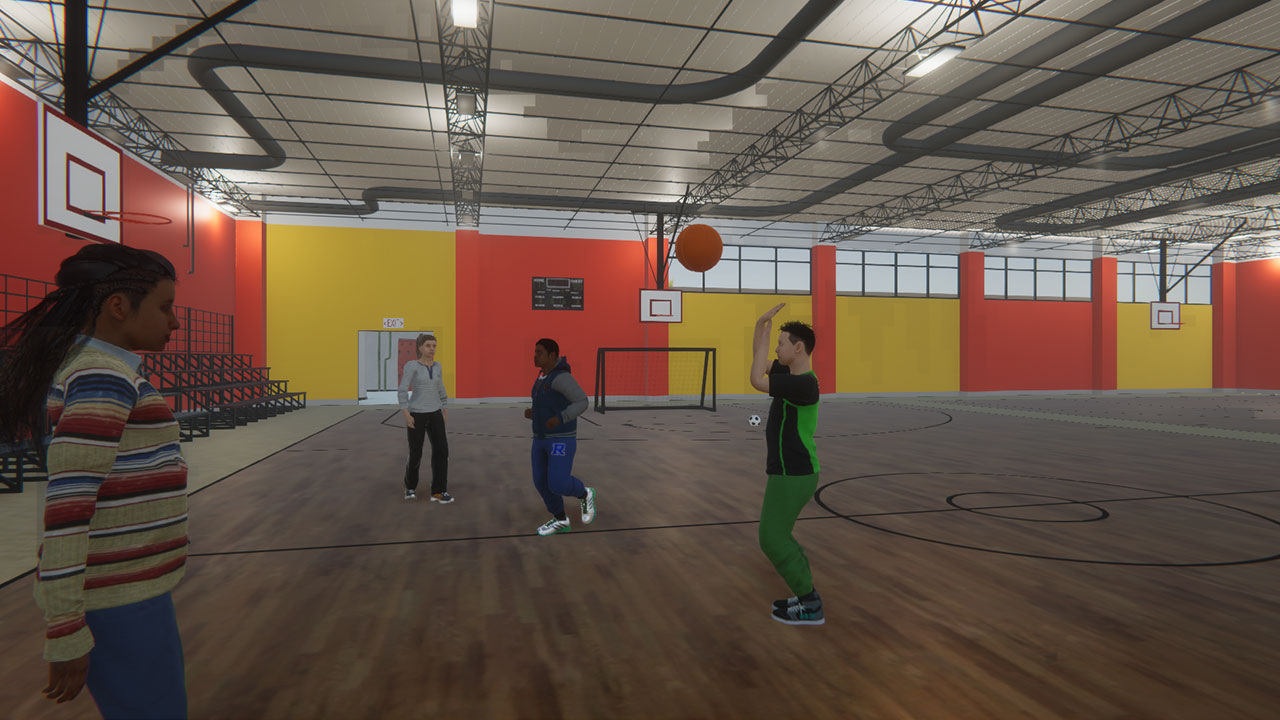VOISS Connection
Ms. Jones created a lesson to help Dylan practice understanding the need for appropriate hygiene (Self-Care & Safety Skill 3).

VOISS Advisor Lesson Plan Outline
Self-Care & Safety Skill 3: Understands Need for Appropriate Hygiene
Define the social skill to be demonstrated in observable and measurable terms. This should be the skill you want the student to use when the situation / opportunity naturally occurs.
While getting ready in the locker room after gym class, Dylan will apply two swipes of deodorant to each armpit for 5/5 gym class periods.
Generalization Emphasis
Setting Generalization
Instructional Setting
Instructional Method
Generalization Tactic
Support Strategy
Reinforcement
Generalizing the Skills
Ms. Jones noticed that Dylan consistently wore deodorant to school since completing VOISS lessons. However, Dylan did not apply deodorant after gym class. Sometimes, Dylan developed body odor during gym exercises. Accordingly, Ms. Jones decided to focus on setting generalization. In addition to applying deodorant each morning, Ms. Jones wanted to teach Dylan to apply deodorant after gym class.
Ms. Jones operationally defined one objective to measure the efficacy of her generalization lessons:
- While getting ready in the locker room after gym class, Dylan will apply two swipes of deodorant to each armpit for 5/5 gym class periods.
Choosing an Instructional Setting and Method
With her outcome defined, Ms. Jones was ready to determine an instructional setting and method. Given the personal nature of the skill, Ms. Jones decided to provide instruction in a 1-1 setting. Additionally, she decided that direct instruction would maximize instructional efficiency and be compatible with the 1-1 setting.
- Instructional Setting: 1-1
- Instructional Method: Direct instruction
Choosing a Generalization Tactic and Support Strategy
Ms. Jones was then ready to identify the generalization tactic that would be best for teaching Dylan the operationally-defined skills. Ms. Jones realized that the natural social contingencies for wearing deodorant were unlikely to be effective, and embedded opportunities would not be appropriate. She also knew that Dylan did not have adult support while getting ready in the locker room, so an adult could not prompt her to put on deodorant. She decided she would teach Dylan to use a self-monitoring sheet and recruit reinforcement by reporting her self-monitoring data at the end of the day. Remembering to apply deodorant would earn Dylan token reinforcement.
- Generalization Tactic: Recruit Reinforcement
- Support Strategy: Reinforcement
Lesson Implementation
Ms. Jones’s Lesson on “Understanding the Need for Appropriate Hygiene”
Creating the Self-Monitoring System
Ms. Jones knew that Dylan was honest and accurate when using self-monitoring systems to report her own behavior. Ms. Jones also knew that Dylan knew how to apply deodorant, but did not apply deodorant after gym class. Because Dylan had the prerequisite skills of self-monitoring and deodorant application, Ms. Jones did not expect instruction to take very long.
Before beginning instruction, Ms. Jones developed a simple self-monitoring sheet. The sheet had a column where Dylan would write the date and another column where Dylan would mark yes or no if she applied or forgot to apply deodorant after gym class. The self-monitoring sheet would be stored inside one of Dylan’s binders.
Carrying Out Direct Instruction
Ms. Jones met with Dylan privately during resource class for 1-1 direct instruction. She praised Dylan for wearing deodorant to school each day and explained that it was also important to apply deodorant after gym class. She explained that when people exercise, they often sweat and produce body odor. When this happens, it’s important to either take a shower or reapply deodorant. Because the school did not have showers, Ms. Jones told Dylan that she needed to apply deodorant after gym class to prevent body odor. Ms. Jones explained that Dylan should take a shower at home in the evening or the morning before school to maintain personal hygiene.
Recruiting Reinforcement
Ms. Jones then showed Dylan the self-monitoring sheet. Ms. Jones modeled filling out the self-monitoring sheet and then asked Dylan to fill out the sheet herself. She reminded Dylan to be honest when filling out the sheet and told Dylan she would never be in trouble for forgetting to wear deodorant. Instead, Dylan would earn reinforcement when she remembered to wear it and shared her self-monitoring data. Ms. Jones told Dylan that each day in the resource room (a class which came after gym class), Dylan would recruit reinforcement by sharing her self-monitoring sheet with special education staff. Ms. Jones developed a token economy and reinforcement menu for Dylan. Dylan would earn a token for each day she applied deodorant and shared her self-monitoring sheet with staff members. Dylan could save up tokens for a larger prize or she could exchange single tokens for smaller prizes.
National and State Standards Benchmarks and Indicators
SCS.3 Understands Need For Appropriate Hygiene
Collaborative for academic, social and emotional learning (CASEL) Standards
- Self-Management
Kansas Social Emotional Character Development (KSECD) Standards
Personal Development
- Self-Management
- Understanding and practicing strategies for managing thoughts and behaviors.
- 6-8 (11-13) 8. Recognizing the impact of personal care.

